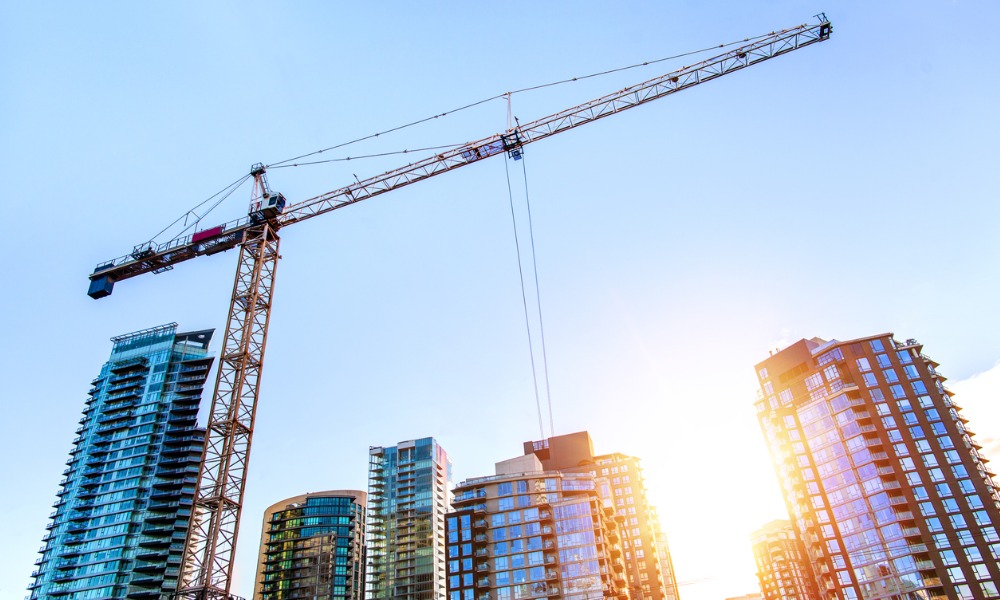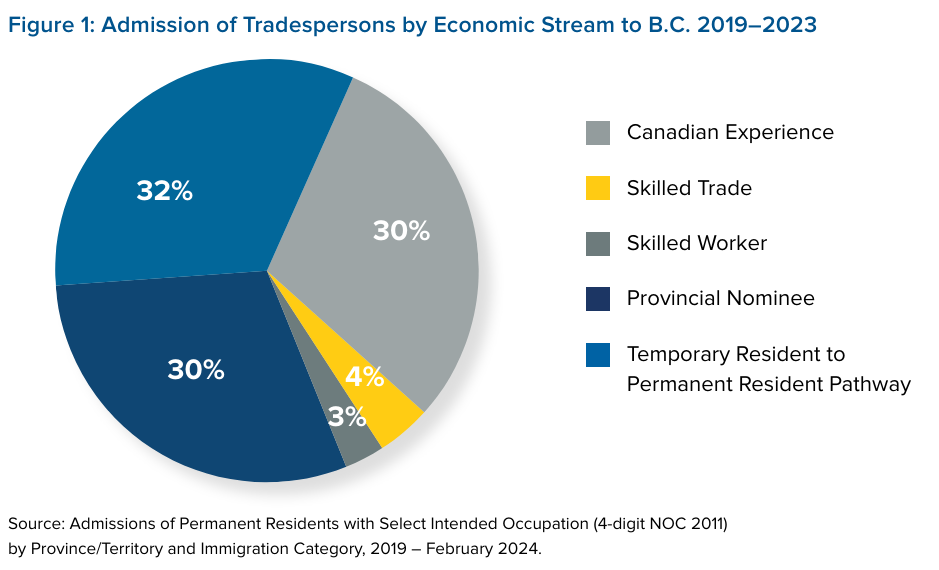
'Instead of ignoring the problem in construction, we're calling on the government of Canada to put a special focus on immigration in B.C.'

A trades union is calling on the federal government to make improvements to the federal immigration system as it has “failed to address construction labour shortages”.
“We are facing a significant labour crunch, and while Canadian construction workers should have first access to available jobs, we recognize the need for new entrants to help to meet the growing need for skilled workers,” said Brynn Bourke, BC Building Trades (BCBT) executive director. “Instead of ignoring the problem in construction, we’re calling on the government of Canada to put a special focus on immigration in B.C.”
As it is, both federal and B.C. governments are not attracting enough international tradespeople to join the workforce, according to the union. And those who do come are often coming through temporary programs that afford less pay and fewer rights.
Temporary workers make up a disproportionate share of the construction industry in B.C., according to BCBT. In 2021, they accounted for 4.7% of the provincial workforce which is more than twice the Canada-wide share of 2.1%, the union noted in its report.
"The share of temporary workers in the construction industry in B.C. is more than double the national proportion," the report said.
“This undercuts wages and employment opportunities for local workers, denies migrant workers important employment rights and protections, and gives employers that overutilize these temporary programs a competitive advantage over companies hiring Canadians.”
Also, between 2019 and 2023, 7,160 temporary work permits were approved across just 11 construction trades in B.C.
Canadian employers’ reliance on temporary foreign workers was on full display last year, when the number of employers allowed to hire workers through the Temporary Foreign Worker (TFW) Program more than doubled from five years ago, according to a recent CBC report citing data from Employment and Social Development Canada (ESDC).

Source: BC Building Trades (BCBT)
Overall, B.C.’s construction industry needs to recruit 52,600 additional workers between 2022 and 2032 to keep pace with labour demands and avoid a deficit of 18,700 construction workers. And Nearly 30% of labour supply for construction will need to come through immigration between now and 2032.
Over the last five years, just 7,020 tradespersons have obtained permanent residency (PR) in B.C. through economic class immigration streams. Meawnhile, only 44,000 tradespeople have been welcomed through those streams Canada-wide.
The Federal Skilled Trades Program is particularly underutilized, according to BCBT. In fact, it accounted for less than 0.2% of economic immigration admissions to B.C. in 2023, with only 270 workers admitted through the program in total between 2019 and 2023.
To address these issues, BCBT recommends that
In May, Ottawa started limiting the use of the TFW Program to employers who absolutely cannot find Canadians who can fill job openings.
Also in May, the Senate called for an end to employer-specific work permits under the TFW Program, noting that the program is “not working well for employers or workers”. In their recommendations, however, the Senate failed to seize on the temporary status of the workers themselves, which is the root cause of their vulnerabilities, according to one expert.
Another report called for the federal government to grant migrant workers permanent residency upon their arrival in Canada.